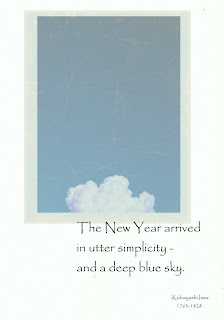 India, as we all know, is a land of diverse cultures, different peoples, customs, languages and lifestyles. Some of us get to experience that diversity through travel, visiting places and finding people as they are, relishing the experiences thus gained. For the rest and most of us, books offer a window into that vastness and one resolution that I had for 2020 is to explore the works by regional authors, be it fiction or otherwise. This book was one such a choice and what a choice it turned out to be!
India, as we all know, is a land of diverse cultures, different peoples, customs, languages and lifestyles. Some of us get to experience that diversity through travel, visiting places and finding people as they are, relishing the experiences thus gained. For the rest and most of us, books offer a window into that vastness and one resolution that I had for 2020 is to explore the works by regional authors, be it fiction or otherwise. This book was one such a choice and what a choice it turned out to be!When it comes to writing works of fiction that represent a particular culture, the authors can choose to depict either a rosy picture, portraying their culture as supremely special or they can present the reality as it is, letting us frame our own opinions about the things thus presented. Needless to say, most of the while, it is the works of latter styles that prove to be impactful. Hansda Sowvendra Shekhar, fortunately for us all, has chosen the second style.
This book, a collection of ten short stories, will shock you and leave you with haunting memories. Like a raw wound, unattended and uncovered, this collection of stories will shock you, disgust you, invoke pity and a sense of helpless anger. Strangely, this book will also leave you wanting for more. Some stories, like that of Baso-jhi, a orphaned widow shunned by all and sundry, or that of Shubhashini, trying to reach home to her ailing son, will both invoke a sense of deep pity. Some other stories, like the couple who move across the country to Gujarat only to witness the fateful riots of 2002, or the plea of the ageing Santhal tribal who dared defy the ‘system’, will both stoke sentiments of a political nature. Stories of a prostitute who hopes for a better life or the servant maid whose moods change at the sight of money, both cause a deep sense of disgust. Equally impactful are the other four stories, each one certain to induce strong emotions in their own way.
The language is unpolished and yet unblemished. Though the author could have toned down the depiction of physical intimacy, which almost border on pornography, it certainly doesn’t feel like cheap titillation. One negative though is the frequent use of vernacular with no meaning offered either as a footnote or endnote. Of course, one can interpret the meaning in the course of the stories, but still I would have loved to see the meanings shared separately.
There is an undertone of sadness that grips readers of the great Saadat Hasan Manto. A similar angst is bound to grip you as you finish reading this book and that I believe is the success of Hansda Sowvendra Shekhar. A memorable read!




